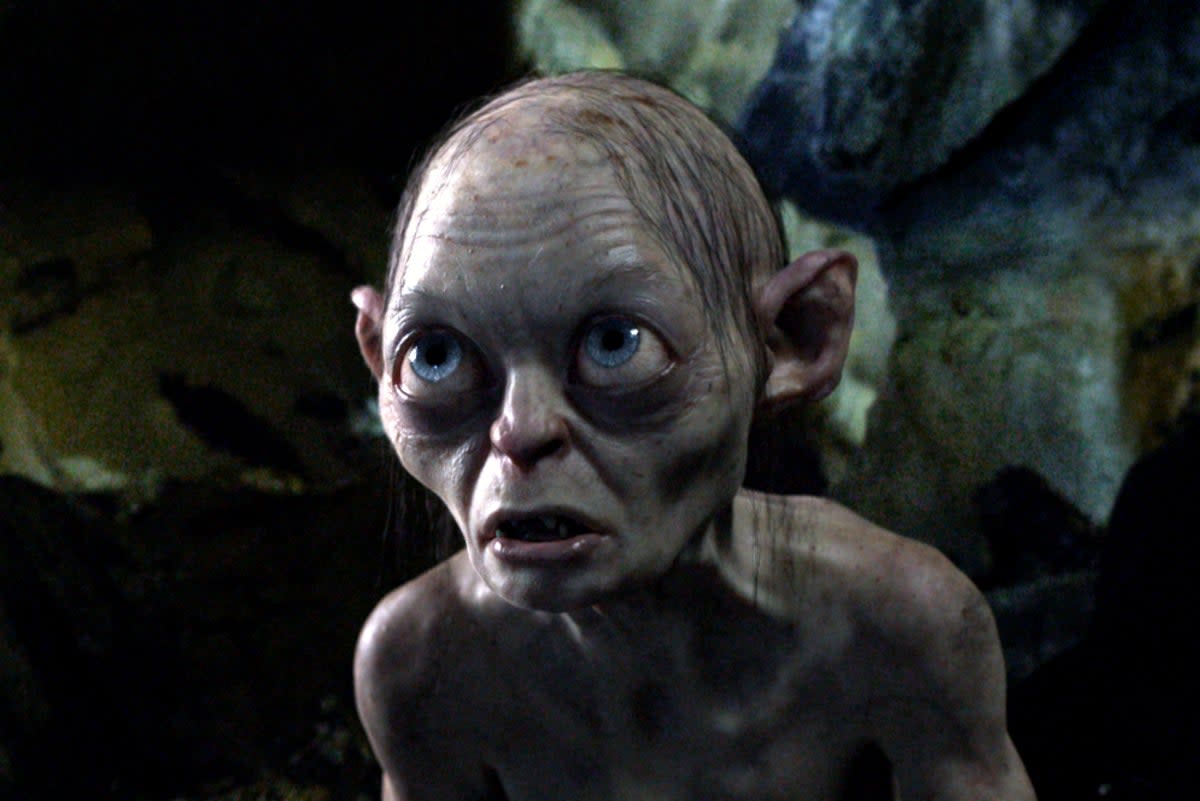More Lord of the Rings is cynical and unnecessary – Peter Jackson has Gollum too far this time

Look to the east at dawn, and you can see The Lord of the Rings returning. But it won’t be like Ian McKellen’s Gandalf at the climax of The Two Towers, bathed in light and triumphant. No, this time, the fantasy franchise is slinking back into view, head cowed. What kind of reception it’ll get is still very much unclear. On Thursday, it was announced that Peter Jackson, the director of the Oscar-winning Lord of the Rings film trilogy (2001-2003), is returning to produce a new film, alongside the original production team of Fran Walsh and Philippa Boyens. Andy Serkis, who played the digitally animated Gollum in the original trilogy, will be directing and starring in the project, with the first film in the planned series tentatively titled Lord of the Rings: The Hunt for Gollum. That’s more or less all we know.
It’s big news, in theory. Jackson’s trilogy remains a high watermark for the entire fantasy genre, a sweeping, artful epic that was both popular and widely acclaimed, with The Return of the King winning a record-tying 11 Academy Awards. And yet it’s hard for most fans to muster any enthusiasm for this impending revival. That’s partly, of course, because it’s never really gone away: in the years since the original trilogy, we’ve had Jackson’s limply received follow-up trilogy adapting The Hobbit (2012-2014), Prime Video’s eye-wateringly expensive – but broadly disliked – lore-bending TV series The Rings of Power (currently developing its second season), and soon we’re getting The Lord of the Rings: The War of the Rohirrim, a glossy animated film hitting cinemas this December.
Common thinking has long been that Jackson’s original trilogy was so good, so definitive, that it would be folly to attempt to adapt Tolkien differently. But we’re reaching a point where the opposite is true: if they’re going to continue making Lord of the Rings projects, then they need to start leaving the past behind. Jackson has invested much of his creative energy into AI-enhanced documentaries in recent years, and has not directed a narrative feature since the third Hobbit. Serkis, meanwhile, has increasingly proven his chops as a live-action actor, though remains something of an unknown quantity as a director. (His previous films include the Andrew Garfield weepy Breathe, The Jungle Book spin-off Mowgli: Legend of the Jungle, and the Marvel sequel Venom: Let There Be Carnage.) He is, I suppose, being framed as the “continuity candidate”, a man who knows Jackson’s Tolkien’s Middle Earth inside and out.
Even along the spectrum of hypothetical Lord of the Rings projects that could have been announced, a Gollum-focused spin-off feels particularly dusty. Warner Bros’ press release makes reference to Serkis’s “unfinished business” with the character – news, I’m sure, to all those who watched his body insta-cremate in a volcano at the end of Return of the King. There’s no denying Gollum’s significance, both as a Great Leap Forward in motion-capture technology, and as a zeitgeisty mascot for the franchise itself. But are people really demanding more of him?
Last year, video game developer Daedalic Entertainment tried to will Gollumania into being, with the release of The Lord of the Rings: Gollum, a video game focused entirely on the little cave-dwelling gremlin. Gollum underperformed in sales and was eviscerated by critics, several of whom branded it the worst game of the year. (“I hates it,” read one headline.) The Hunt for Gollum is almost surely going to be better than this, of course. There is too much money and talent behind it. (Even the Hobbit films were disappointing rather than meritless; despite pacing issues and a surfeit of CGI, they’re nowhere near the nadir of modern franchise blockbusters.) But it’s just as unnecessary, just as fundamentality cynical in its very conception.
Those fans of Lord of the Rings who made it to the end of Frodo Baggins’s journey will surely remember another scene, at the end of the third film. Having returned safely to the Shire, Frodo tells his tearful friends that he’s leaving, to travel to the Undying Lands, never to return. It’s a bittersweet moment of profound loss and acceptance – of death, perhaps. (The Undying Lands are described in a way not dissimilar to Christian heaven.) And accept it they do.
Everything has to end. We can only choose whether to meet this with grace. But Hollywood is its own kind of undying land. Warner Bros wants one more chorus of Mordor on the dancefloor – and you’d better not kill the groove.
‘Lord of the Rings: The Hunt for Gollum’ is expected to be released in 2026

 Yahoo News
Yahoo News 
